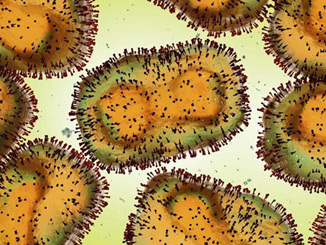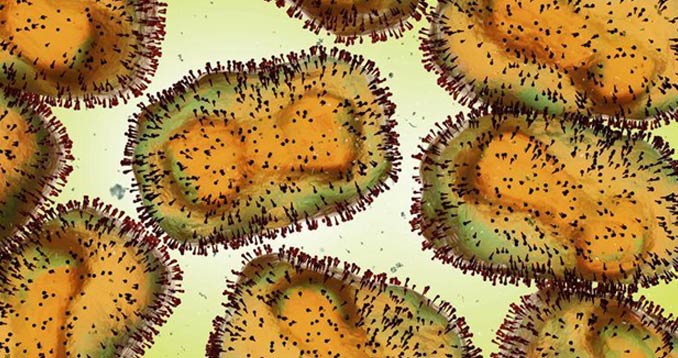

WHO has declared global monkeypox outbreak represents a public health emergency of international concern.
WHO Director-General Tedros Adhanom Ghebreyesus made the decision on calling monkeypox a global emergency despite a lack of consensus among experts on the UN health agency’s emergency committee, saying he acted as “a tiebreaker.” It was the first time a UN health agency chief has unilaterally made such a decision without an expert recommendation.
“We have an outbreak that has spread around the world rapidly through new modes of transmission, about which we understand too little,” Tedros said. “I know this has not been an easy or straightforward process and that there are divergent views,” he said.
There are now more than 16 thousand reported cases from75 countries and territories, and five deaths. “Under the International Health Regulations, I am required to consider five elements in deciding whether an outbreak constitutes a public health emergency of international concern,” said Tedros.
“First, the information provided by countries – which in this case shows that this virus has spread rapidly to many countries that have not seen it before;
Second, the three criteria for declaring a public health emergency of international concern, which have been met;
Third, the advice of the Emergency Committee, which has not reached consensus;
Fourth, scientific principles, evidence and other relevant information – which are currently insufficient and leave us with many unknowns;
And fifth, the risk to human health, international spread, and the potential for interference with international traffic,” said Tedros.
WHO’s assessment is that the risk of monkeypox is moderate globally and in all regions, except in the European region where we assess the risk as high.
There is also a clear risk of further international spread, although the risk of interference with international traffic remains low for the moment.
“So in short, we have an outbreak that has spread around the world rapidly, through new modes of transmission, about which we understand too little, and which meets the criteria in the International Health Regulations,” said Tedros.
“For all of these reasons, I have decided that the Accordingly, I have made a set of recommendations for four groups of countries:
First, those that have not yet reported a case of monkeypox, or have not reported a case for more than 21 days;
Second, those with recently imported cases of monkeypox and that are experiencing human-to-human transmission.
This includes recommendations to implement a coordinated response to stop transmission and protect vulnerable groups;
To engage and protect affected communities;
To intensify surveillance and public health measures;
To strengthen clinical management and infection prevention and control in hospitals and clinics;
To accelerate research into the use of vaccines, therapeutics and other tools,” said Tedros.
And recommendations on international travel, The third group of countries is those with transmission of monkeypox between animals and humans and the fourth is countries with manufacturing capacity for diagnostics, vaccines and therapeutics.
“The International Health Regulations remains a vital tool for responding to the international spread of disease,” said Tedros.
“But this process demonstrates once again that this vital tool needs to be sharpened to make it more effective,” he said.
“So I’m pleased that alongside the process of negotiating a new international accord on pandemic preparedness and response, WHO’s Member States are also considering targeted amendments to the International Health Regulations, including ways to improve the process for declaring a public health emergency of international concern,” said Tedros.
“Although I am declaring a public health emergency of international concern, for the moment this is an outbreak that is concentrated among men who have sex with men, especially those with multiple sexual partners. That means that this is an outbreak that can be stopped with the right strategies in the right groups,” said Tedros.
“It’s therefore essential that all countries work closely with communities of men who have sex with men, to design and deliver effective information and services, and to adopt measures that protect the health, human rights and dignity of affected communities. Stigma and discrimination can be as dangerous as any virus.” he said.
“In addition to our recommendations to countries, I am also calling on civil society organizations, including those with experience in working with people living with HIV, to work with us on fighting stigma and discrimination. But with the tools we have right now, we can stop transmission and bring this outbreak under control,” concluded Tedros.

Leave a Reply